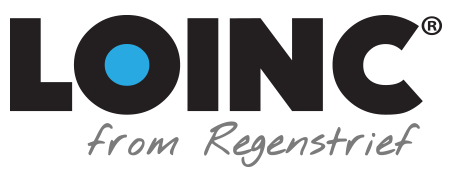The world is focused on the outbreak of respiratory illness caused by a novel coronavirus. The World Health Organization (WHO) has named the syndrome caused by this coronavirus “COVID-19”, and the International Committee on Taxonomy of Viruses (ICTV) has named the virus “Severe acute respiratory syndrome coronavirus 2” or SARS-CoV-2.
As part of the global effort to manage and contain this global public health emergency, two global health standards organizations, Regenstrief Institute and SNOMED International, are doing their part to support care teams globally to code and track SARS-CoV-2 testing and COVID-19 cases, and by extension support clinicians and researchers in their efforts to address its containment.
Both subject matter experts in coding and structuring clinical information, Regenstrief Institute and SNOMED International have recently introduced new content to their respective products, a laboratory and health observations oriented coding system in the case of LOINC, and a broad spectrum clinical terminology in the case of SNOMED CT. With the high rate of global adoption for both standards, LOINC and SNOMED CT have taken swift action to make this content immediately available to support those on the ground in tackling the virus.
The creation of new COVID-19 and SARS-CoV-2 codes and concepts from LOINC and SNOMED CT introduce the structure in coding needed for health systems internationally to manage the outbreak.
“With novel viruses that appear to be easily transmittable, such as the coronavirus, it is vitally important that all identified cases be reported quickly for public health tracking,” said Regenstrief Research Scientist Theresa Cullen, M.D., M.S., global health expert with the Regenstrief Institute. Don Sweete from SNOMED International says “the creation of new COVID-19 and SARS-CoV-2 codes and concepts from LOINC and SNOMED CT introduce the structure in coding needed for health systems internationally to manage the outbreak. Both Dr. Cullen and Sweete agree that in possessing superior data, health leaders worldwide can engage in a higher degree of analysis to inform their outbreak management approach. Based on the formal naming of the syndrome and virus by WHO and ICTV, both organizations are presently updating their respective code and concepts to reflect the change.
For more information on the specific actions that each organization has taken, visit Regenstrief Institute and SNOMED International respectively.
Regenstrief Institute and SNOMED International mutually recognize the importance of interoperability through standardization in the pursuit of timely, safe and efficient health care and continue to work collaboratively to achieve this end.
About Regenstrief Institute
Founded in 1969 in Indianapolis, the Regenstrief Institute is a local, national and global leader dedicated to a world where better information empowers people to end disease and realize true health. A key research partner to Indiana University, Regenstrief and its researchers are responsible for a growing number of major healthcare innovations and studies. Examples range from the development of global health information technology standards that enable the use and interoperability of electronic health records to improving patient-physician communications, to creating models of care that inform practice and improve the lives of patients around the globe.
Regenstrief Institute is celebrating 50 years of healthcare innovation. Sam Regenstrief, a successful entrepreneur from Connersville, Indiana, founded the institute with the goal of making healthcare more efficient and accessible for everyone. His vision continues to guide the institute’s research mission.
About LOINC®
LOINC was created in 1994 at Regenstrief Institute in an effort to facilitate interoperability in healthcare. There was a growing trend to send clinical data electronically between healthcare entities, a practice that is integral today. Today, the LOINC coding system contains more than 92,000 terms for everything from a serum alpha 1 antitrypsin level to a zygomatic arch x-ray report. For each concept, LOINC covers many other rich details, such as synonyms, units of measure, and carefully crafted descriptions.
About SNOMED International and SNOMED CT
SNOMED International is a not-for-profit organization that owns, administers and develops SNOMED CT, the world’s most comprehensive clinical terminology. The safe, accurate and effective exchange of health information is an essential part of the foundation to improve healthcare around the world. We strive to determine the best global standards for health terminology, and to engage with the global healthcare community to improve SNOMED CT and patient safety.
We work to ensure that SNOMED CT can be routinely integrated into healthcare information systems. With SNOMED CT, users can record patient data more accurately and comprehensively – and use tools and analytics to provide better patient care and health management.










